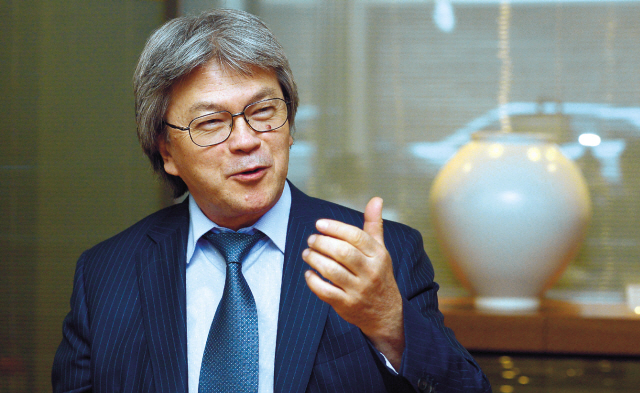Russian executive explores partnership with Korean firms
By Korea HeraldPublished : June 11, 2013 - 20:47
Russian executives in charge of a massive transport project in Moscow explored possible investment and technology partnerships last week with South Korean counterparts, heralding a foray of Korean firms into the Russian market.
“Russia is accelerating its renovation of its industries at breakneck speed, a pattern that might be new to Korean investors,” said Sergei Pak, CEO of RZD-RV, a subsidiary of the Russian transport giant Russian Railway, in an interview.
“Russia is accelerating its renovation of its industries at breakneck speed, a pattern that might be new to Korean investors,” said Sergei Pak, CEO of RZD-RV, a subsidiary of the Russian transport giant Russian Railway, in an interview.

Pak, whose father is Korean, made his first-ever visit to Seoul to meet officials from several Korean companies interested in the Russian development project known as the Transportation Interchange Hub.
The city of Moscow intends to attract Korean investors and corporate partners in constructing and managing 55 transportation hubs in a large-scale project worth $10 billion to relieve the city’s chronic traffic problem.
Pak and his adviser Valery Chang exchanged views on the Russian project with officials from private Korean firms such as KT, and met officials in charge of the Seoul Transport Operation and Information Service.
Zenith Partners Korea Co. Ltd., a Korean partner with RZD-RV, invited the Russian delegation to help arrange investment and technology partnerships. Foreign investment for the project is being handled by SAABAA International Ltd., which signed a memorandum of understanding in March with the Russian company.
According to Zenith Partners and SAABAA, the TIH project already attracted investment deals from private investors in Russia and partners in Singapore and Germany.
Pak said he witnessed a distinctive difference in business approach through the meetings with potential Korean investors. “The way Russian and Korean businesspeople view a project is different, which could pose a barrier in implementing a joint deal,” he said.
Another key issue is building mutual trust, Pak said. The business partnerships between Russian and Korean companies are rare, resulting in a longer-than-usual period required for forging reliable relations.
Business models are different, especially given that private businesses in Russia are still in their infancy, Pak said, and many of the major projects get implemented by the state agencies, including the TIH project.
Pak, however, remained optimistic about partnerships with Korean companies. “Many foreign companies including those in Europe and China have successfully settled in the Russian market, and, surprisingly, very few Korean firms have attempted to make inroads into Russia,” he said, hinting at fresh opportunities for Korean companies.
Each TIH will house transportation infrastructure for railroads, metros, buses and taxis along with commercial facilities such as large shopping centers, cafes, restaurants and hotels.
By Yang Sung-jin (insight@heraldcorp.com)
-
Articles by Korea Herald








![[KH Explains] Hyundai-backed Motional’s struggles deepen as Tesla eyes August robotaxi debut](http://res.heraldm.com/phpwas/restmb_idxmake.php?idx=644&simg=/content/image/2024/05/16/20240516050605_0.jpg&u=20240516155018)










